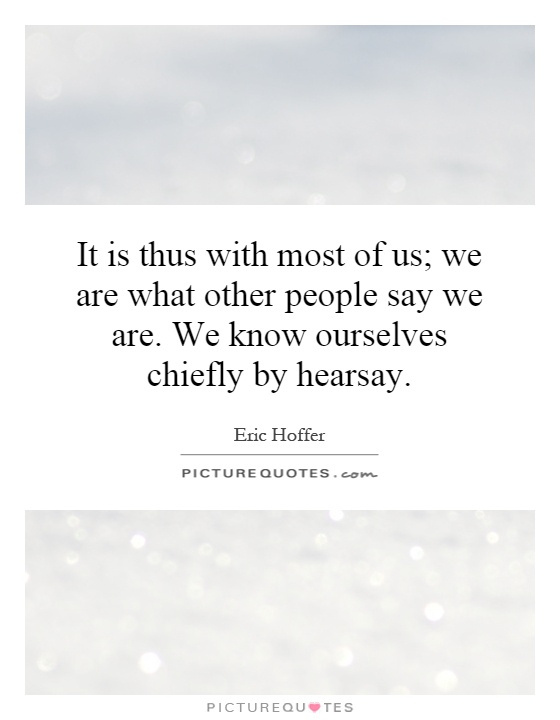It is thus with most of us; we are what other people say we are. We know ourselves chiefly by hearsay

It is thus with most of us; we are what other people say we are. We know ourselves chiefly by hearsay
Eric Hoffer, a renowned American philosopher and author, once said, "It is thus with most of us; we are what other people say we are. We know ourselves chiefly by hearsay." This statement holds a profound truth about human nature and the way we perceive ourselves in relation to others.Hoffer believed that our sense of self is heavily influenced by the opinions and perceptions of those around us. We rely on the feedback and judgments of others to form our own self-image, often shaping our identity based on how we are perceived by society. This can be both a blessing and a curse, as the opinions of others can either validate or undermine our sense of self-worth.
In the context of Eric Hoffer's philosophy, this idea can be seen as a reflection of the human need for validation and acceptance. We seek approval and recognition from others in order to feel a sense of belonging and worthiness. This can lead to a constant cycle of seeking external validation, as we look to others to define who we are and what we are capable of.
However, Hoffer also recognized the danger of relying too heavily on the opinions of others. He understood that our self-perception can be easily swayed by the judgments of those around us, leading to a loss of individuality and autonomy. When we allow others to define us, we risk losing sight of our own unique identity and potential.
In the context of Eric Hoffer's own life, this idea can be seen in his own struggles with self-doubt and insecurity. Hoffer, who was a self-taught philosopher and writer, often faced criticism and rejection from the academic establishment. Despite this, he continued to pursue his passion for writing and philosophy, ultimately becoming a respected and influential figure in his own right.












 Friendship Quotes
Friendship Quotes Love Quotes
Love Quotes Life Quotes
Life Quotes Funny Quotes
Funny Quotes Motivational Quotes
Motivational Quotes Inspirational Quotes
Inspirational Quotes